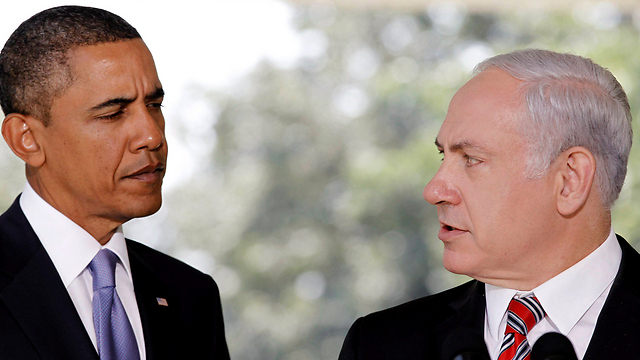
A guide to restoring the US-Israel friendship
Op-ed: Both Obama and Netanyahu must overcome their toxic dynamic, and while it's not going to be easy, the challenges they face and their shared interests mean they cannot allow personal animosity to dictate their actions.
The Obama administration's response to the Israeli election results are grave and a cause for concern. The relationship between Benjamin Netanyahu and Barack Obama may indeed already be beyond repair, but both sides can still adopt measures that could minimize the damage to the relations between the two countries.
Punitive and vindictive steps on the part of Obama and countermeasures on the part of Netanyahu are no replacement for policy. During the course of the election campaign, Obama said he would work with whoever was elected prime minister of Israel. Now's the time to put him to the test, and also to implement measures that will at least create a reasonable working relationship between Jerusalem and Washington until the end of Obama's second and last term in office in January 2017.
Over and above the issue of the problematic negotiations that Washington is conducting with Iran, the relations between Israel and the United States are about to come under a major test on the Palestinian front. Netanyahu was wrong to publically repudiate the two-state solution.
Because Obama has absolutely no faith in Netanyahu, the latter's explanations after the election were rejected. Obama's response, which was to say that Netanyahu's rejection of the two-state solution requires the United States to formulate an alternative policy to prevent chaos in the region, was extreme and over the top. The chaos in the region exists regardless of the Palestinian issue. But processes and events that the Palestinians are initiating will require taking a stand and action.
France is about to submit a draft resolution to the UN Security Council that demands an Israeli withdrawal to the 1967 lines within two years and recognition of a Palestinian state. This draft resolution contradicts standing US policy, according to which a solution to the Israeli-Palestinian conflict must be achieved through negotiations only. And it is flawed too, as it absolves the Palestinians of the need to make any concessions.
Only an American veto can prevent the Security Council from adopting the French resolution, but Obama is hinting that he won't exercise his right to impose a veto. Such a move would cause a huge rift in US-Israel relations, and also give the European Union a green light to implement its plan to put economic and commercial pressure on Israel.
Beginning April 1, the Palestinians will have the right to submit war crime complaints to the International Criminal Court in The Hague. Here, too, the position of the United States is critical in terms of preventing or limiting the damage to Israel. And Israel will also need the support of the Americans in the event of military escalation in the West Bank or Gaza Strip.
The appointments that Netanyahu makes in the framework of the new government could be an indication of efforts to reduce tensions with Washington. Netanyahu needs to appoint a foreign minister who does not have a track record of publically criticizing US policy or American officials, someone who can revive the relations and dialogue with Secretary of State John Kerry.
He also needs to replace Israel's ambassador in Washington, Ron Dermer, who has been burned by his involvement in the preparations for Netanyahu's address to Congress. Israel's ambassador to the United States will play a vital role in rebuilding relations with the White House, the Democrats in Congress and the Jewish community.
There are several individuals vying for the post of foreign minister. Naftali Bennett and Avigdor Lieberman don't fit the bill when it comes to making peace with Obama. Yuval Steinitz – who spent the last few years dealing with intelligence and strategic cooperation between the two countries, served as chairman of the Knesset Foreign Affairs and Defense Committee, and has good ties in the United States and Europe – is the best candidate. Gilad Erdan and Silvan Shalom would also be good choices. The position of ambassador to the United States can be filled by someone like Ron Prosor, an excellent and seasoned diplomat who currently serves as Israeli ambassador to the UN.
Following the establishment of the new Israeli government, Obama should invite Netanyahu to Washington for a serious work meeting at the White House. Obama didn't want to meet with Netanyahu when the Israeli leader was in Washington to address Congress, claiming that such a meeting could be interpreted as intervention in the Israeli election campaign.
With the election now over, there's no reason not to sit down for a productive meeting. Both leaders must overcome the toxic dynamic between them, and it's not going to be easy at all for either of them. But the challenges they face and the interests they share are critical and urgent, and they cannot allow the personal animosity between them to overpower them.
Prof. Eytan Gilboa is the director of the Center for International Communication at Bar-Ilan University and a senior research fellow at the Begin-Sadat Center for Strategic Studies.











